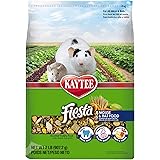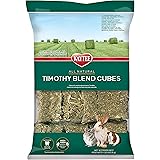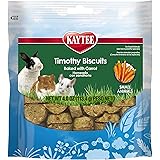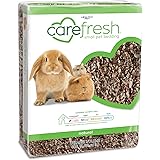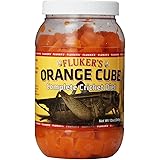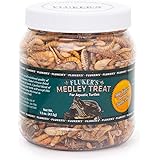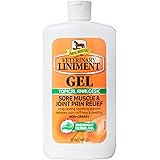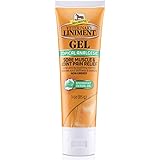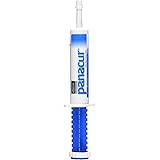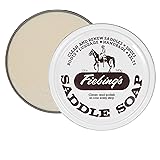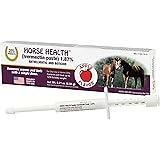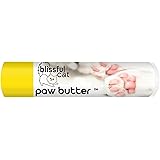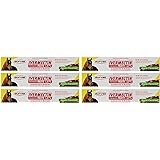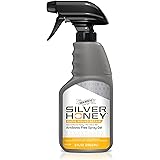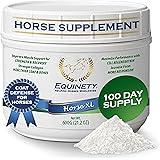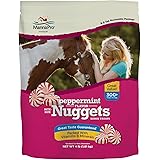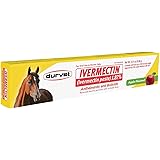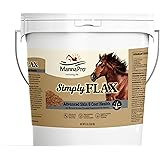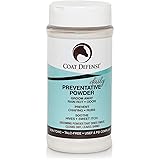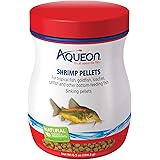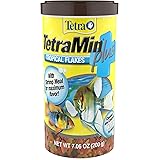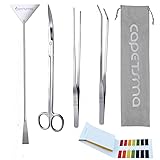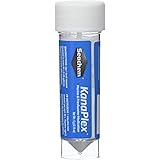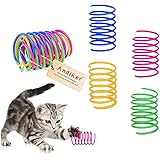
Photo by <a href="https://unsplash.com/@davotibarna" rel="nofollow">Barnabas Davoti</a> on <a href="https://unsplash.com/?utm_source=hostinger&utm_medium=referral" rel="nofollow">Unsplash</a>
Introduction to Natural Pet Remedies
The use of natural remedies for pets is increasingly becoming a popular choice among pet owners. This holistic approach to pet health leverages the therapeutic properties of herbs, essential oils, and other natural ingredients to address common ailments. Unlike conventional medicine, which often focuses on symptom alleviation, natural remedies aim to treat the root cause of the issue, promoting overall well-being and a balanced life for our furry companions.
One of the primary benefits of natural remedies is their reduced likelihood of causing adverse side effects. While pharmaceuticals can be effective, they sometimes bring along a host of unwanted reactions that can be distressing for both pets and their owners. Holistic treatments, on the other hand, typically offer a gentler alternative. Nevertheless, it’s crucial to remember that natural doesn’t always mean safe. Consulting with a veterinarian is essential before starting any natural treatment regimen to ensure that it’s suitable for your pet’s specific health needs.
The growing trend toward natural pet care is largely driven by an increased awareness of the benefits of a holistic lifestyle, not just for humans but also for our pets. Pet owners are seeking out more information and resources about natural remedies, which underscores the importance of educating oneself and making informed decisions. Whether it’s addressing minor issues like dry skin or more significant health concerns, natural remedies can often provide relief and contribute to a pet’s overall health.
This blog will explore various natural remedies and their potential benefits, offering a holistic approach to managing common pet ailments. Each section will delve into specific treatments, supported by research and expert opinions, to guide you through the best practices in natural pet care. Ultimately, our goal is to provide you with knowledge and insights that can help maintain and enhance your pet’s quality of life.
Herbal Remedies for Digestive Issues
Digestive issues in pets, including upset stomach, diarrhea, and constipation, can often be alleviated through the use of natural herbs. Among the most effective herbal remedies are ginger, chamomile, and mint, each offering unique benefits for your pet’s digestive health.
Ginger, known for its anti-inflammatory properties, can help soothe an upset stomach and reduce nausea in pets. It works by stimulating digestive enzymes, which facilitates smoother digestion. A typical dosage for a medium-sized dog is around 1/4 teaspoon of powdered ginger mixed into their food, but it is always best to consult a veterinarian for specific recommendations. While ginger is generally safe, excessive amounts can cause heartburn or worsen existing gastrointestinal issues.
Chamomile is another herb widely recognized for its calming effects on the digestive system. It can help relax the muscles of the gastrointestinal tract, thereby reducing symptoms of bloating and gas. Chamomile can be administered as a tea, with one teaspoon of dried chamomile flowers steeped in a cup of boiling water and allowed to cool. Dosages can vary, with small dogs and cats typically needing one to two teaspoons of the cooled tea, while larger dogs might require up to a tablespoon. Potential side effects are rare but can include allergic reactions, especially in pets sensitive to plants in the daisy family.
Mint, particularly peppermint, can also be beneficial for pets experiencing digestive discomfort. Peppermint aids in reducing gas and promoting bile flow, essential for fat digestion. It can be offered in the form of fresh leaves, a diluted tea, or as a supplement. The recommended dosage is usually one or two leaves for small pets or up to a tablespoon of tea for larger animals. Overuse of peppermint should be avoided, as it can cause vomiting and an upset stomach.
In all cases, it is crucial to observe your pet’s reaction to these herbal treatments and consult with a veterinarian to ensure these remedies are appropriate for your pet’s specific condition and overall health.
Essential Oils for Anxiety and Stress
Essential oils have long been recognized for their therapeutic benefits in humans, but their application in pet care is becoming increasingly popular. When used correctly, essential oils can be a natural remedy to alleviate anxiety and stress in pets, making them feel more relaxed and comfortable.
Among the myriad of essential oils available, some are particularly beneficial and safe for pets. Lavender oil is a popular choice due to its calming properties. It can help reduce restlessness and promote relaxation. Chamomile oil is another excellent option, known for its gentleness and soothing effect. It can aid in calming nervous pets and helping them manage stress more effectively.
Using essential oils for pets requires caution and proper application methods. One of the safest ways to use essential oils is through a diffuser. Placing a diffuser in the pet’s environment can release the oils’ calming aromas without direct contact. Ensure the room is well-ventilated and that the pet can leave if it finds the scent overwhelming.
Topical application is another method, but it demands precision. Essential oils should always be diluted with a carrier oil, such as coconut or olive oil, to reduce the risk of skin irritation. A few drops mixed with a carrier oil can be gently massaged onto the pet’s fur, focusing on areas the pet cannot easily lick, such as the back or base of the neck.
Creating a calming environment extends beyond the use of essential oils. Consider maintaining a routine that includes regular exercise and mental stimulation. Providing a quiet, comfortable space where your pet can retreat to during stressful times, such as during thunderstorms or fireworks, can also enhance the calming effects of essential oils.
When introducing any new treatment, including essential oils, it’s crucial to monitor your pet’s reactions and consult your veterinarian to ensure the best care for your furry companion. Properly applied, essential oils can be an excellent addition to a holistic approach to pet health, effectively managing anxiety and stress.
Natural Treatments for Skin and Coat Health
Maintaining the health of a pet’s skin and coat is crucial for overall well-being. Natural remedies offer a gentle yet effective approach to addressing common skin issues and promoting a healthy, shiny coat. Coconut oil is one such remedy, renowned for its moisturizing properties. It can be applied directly to the pet’s skin or coat, providing relief from dryness and flakiness while imbuing the fur with a natural sheen. Adding a small amount of coconut oil to your pet’s diet can also enhance skin health from the inside out, thanks to its anti-inflammatory and antibacterial qualities.
Apple cider vinegar is another valuable natural treatment. Its antiseptic properties make it an excellent solution for battling itchiness and bacterial infections. A diluted mixture of one part apple cider vinegar to two parts water can be spritzed onto the pet’s coat or used as rinse after bathing. This remedy not only soothes irritated skin but also helps repel fleas and ticks due to its acidic nature, contributing to overall skin health.
Oatmeal baths are a historic remedy for soothing inflamed and itchy skin. To prepare an oatmeal bath, grind plain oatmeal into a fine powder and blend it into warm bath water. Allow your pet to soak for 10-15 minutes to absorb the calming properties of the oatmeal. This treatment is particularly beneficial for pets with eczema, hot spots, or general skin irritations, as oatmeal has natural anti-inflammatory and moisturizing effects.
Incorporating these natural treatments into your pet’s routine can yield significant benefits in maintaining skin and coat health. Regular application can prevent dryness, reduce itchiness, and foster a shiny, vibrant coat. Always consult with a veterinarian to ensure these remedies are suitable for your pet’s specific condition and breed.
Dietary Supplements for Joint and Bone Health
Ensuring the joint and bone health of pets, particularly older ones, or those prone to conditions like arthritis, is crucial for maintaining their overall wellbeing. A holistic approach to pet care often includes the incorporation of certain dietary supplements that can support and enhance joint and bone health. Among these, turmeric, fish oil, and glucosamine hold prominent positions due to their proven benefits.
Turmeric, known for its anti-inflammatory properties, is a powerful supplement for managing arthritis in pets. Curcumin, the active ingredient in turmeric, helps in reducing inflammation and pain. Administering a small, vet-recommended dosage mixed with your pet’s food can lead to significant improvements in mobility and comfort levels.
Fish oil, rich in omega-3 fatty acids, is another beneficial supplement. These fatty acids not only work as anti-inflammatory agents but also contribute to the improvement of overall joint health. When integrating fish oil into your pet’s diet, adhere strictly to the dosage guides provided by the product or recommended by your veterinarian to avoid any potential side effects, such as digestive upset or vitamin E deficiencies.
Glucosamine, often found naturally in the cartilage of joints, is vital for maintaining cartilage structure and function. In supplement form, glucosamine can help slow down the degradation of joint cartilage, offering both pain relief and enhanced mobility for pets suffering from arthritis or other joint ailments. It is typically available in tablet or liquid form, allowing easy integration into your pet’s daily regimen. As always, the appropriate dosage should be tailored to your pet’s weight and health condition, as advised by a healthcare professional.
The integration of these natural supplements not only aids in maintaining and improving joint and bone health but also ensures a better quality of life for your pets. When used correctly and in conjunction with a balanced diet and regular exercise, these supplements can help mitigate the symptoms of arthritis and other joint-related issues, providing your pet with enhanced mobility and comfort.
Homeopathy for Common Pet Illnesses
Homeopathy, a holistic system of medicine developed over two centuries ago, has gained popularity not just for humans but equally in veterinary care. This approach centers around the principle of “like cures like,” where substances that cause symptoms in a healthy being can, in minute quantities, treat similar symptoms in a sick one. In the realm of pet health, homeopathy offers effective solutions for various common ailments, promoting the body’s natural healing process.
For respiratory issues such as coughing, sneezing, or nasal discharge, remedies like Aconitum napellus may be recommended for sudden onset ailments, especially if anxiety and restlessness are present. For more chronic conditions, Pulsatilla is often employed, particularly where symptoms change frequently. Moreover, Rhus toxicodendron is known to alleviate symptoms associated with kennel cough and bronchitis due to its anti-inflammatory properties.
Allergies, a frequent concern among pets, also find relief through homeopathic remedies. Apis mellifica can help when pets exhibit swelling, redness, and itching, akin to symptoms from bee stings. For persistent and severe itching, Sulphur might be prescribed. Another prominent remedy, Histaminum hydrochloricum, is utilized for its antihistamine-like effects, which can mitigate allergic reactions.
Infections in pets, encompassing a range of conditions from urinary tract infections to gastrointestinal disturbances, are yet another area where homeopathy shines. Cantharis is a well-known remedy for urinary tract infections, known to alleviate burning pains and frequent urination. For digestive issues such as vomiting or diarrhea, Arsenicum album provides relief, especially when symptoms are accompanied by restlessness and anxiety.
Understanding that homeopathy demands careful diagnosis and individualized treatment is crucial. The symptoms and overall condition of the pet guide the selection of appropriate remedies, underscoring the necessity of professional guidance. Veterinarians specialized in homeopathy can tailor treatments to ensure safety and efficacy, optimizing the holistic care of your beloved pets.
Holistic Approaches to Dental Care
Maintaining your pet’s dental health is crucial for their overall well-being. Holistic approaches offer natural and effective alternatives to traditional dental treatments. One fundamental method is diet modification. Feeding your pet a balanced diet, with a focus on whole foods, can significantly impact dental health. Crunchy vegetables and fruits like carrots and apples can act as natural toothbrushes, reducing plaque buildup and promoting healthier gums.
Another beneficial approach is the use of natural chews. Dogs and cats can benefit greatly from chewing on raw bones, antlers, or natural dental chews made from safe, non-toxic materials. These chews not only help in keeping teeth clean but also provide mental stimulation, reducing stress and anxiety, which can have a positive overall impact on their health.
Herbal dental rinses are also gaining popularity for their gentle yet effective properties. Ingredients like neem, aloe vera, and peppermint have antibacterial and anti-inflammatory effects, which can help in reducing oral bacteria and soothing irritated gums. These natural remedies are generally more affordable and accessible compared to traditional dental products, making them an excellent option for many pet owners.
Implementing these holistic dental care strategies into your pet’s routine can be straightforward. Start by gradually incorporating natural treats and chews into their diet. Invest in quality, pet-friendly vegetables and fruits, ensuring they are safe for consumption. For herbal dental rinses, consult with a veterinarian well-versed in holistic treatments for appropriate recommendations and dosages.
Choosing holistic dental care methods not only benefits your pet’s oral health but also aligns with a more natural, less invasive approach to overall pet care. These methods have fewer side effects compared to some conventional treatments and can seamlessly fit into your pet’s daily routine, promoting healthier teeth and gums while ensuring the well-being of your beloved companion.
Case Studies and Success Stories
Over the years, many pet owners have turned to natural remedies to address a wide range of ailments plaguing their beloved companions. The following case studies illustrate how these remedies have positively impacted the health and well-being of pets, showcasing the effectiveness and practicality of holistic approaches.
Consider the case of Bella, a seven-year-old Labrador Retriever suffering from chronic anxiety. Her owner, Sarah, had tried numerous conventional treatments with little success. After consulting with a veterinarian specializing in holistic medicine, Sarah introduced chamomile and valerian root into Bella’s routine. Within weeks, Bella’s anxiety levels had significantly diminished, allowing her to engage more comfortably in everyday activities.
Another success story involves Max, a five-year-old Persian cat with persistent skin issues. Max had been experiencing severe itchiness and irritation, causing him to scratch incessantly, leading to open sores. His owner, Tom, decided to try a natural approach by incorporating organic coconut oil into Max’s diet and using a calendula-based topical cream. The transformation was remarkable; Max’s skin healed, and his coat became shinier and healthier.
Digestive problems are also a common issue among pets, as illustrated by the experience of Charlie, a senior Beagle. Charlie’s owner, Emma, was at her wit’s end dealing with his recurrent bouts of diarrhea and vomiting. After thorough research and veterinary advice, she opted for a regimen that included pumpkin puree and probiotic supplements. The natural ingredients helped regulate Charlie’s digestion, and he regained his vitality.
These examples signal a growing recognition of the benefits of natural remedies in pet health care. Whether dealing with anxiety, skin ailments, or digestive issues, holistic methods can offer a viable alternative to conventional treatments. The successful outcomes observed in these real-life cases stress the importance of considering natural options for maintaining and enhancing pet health.












